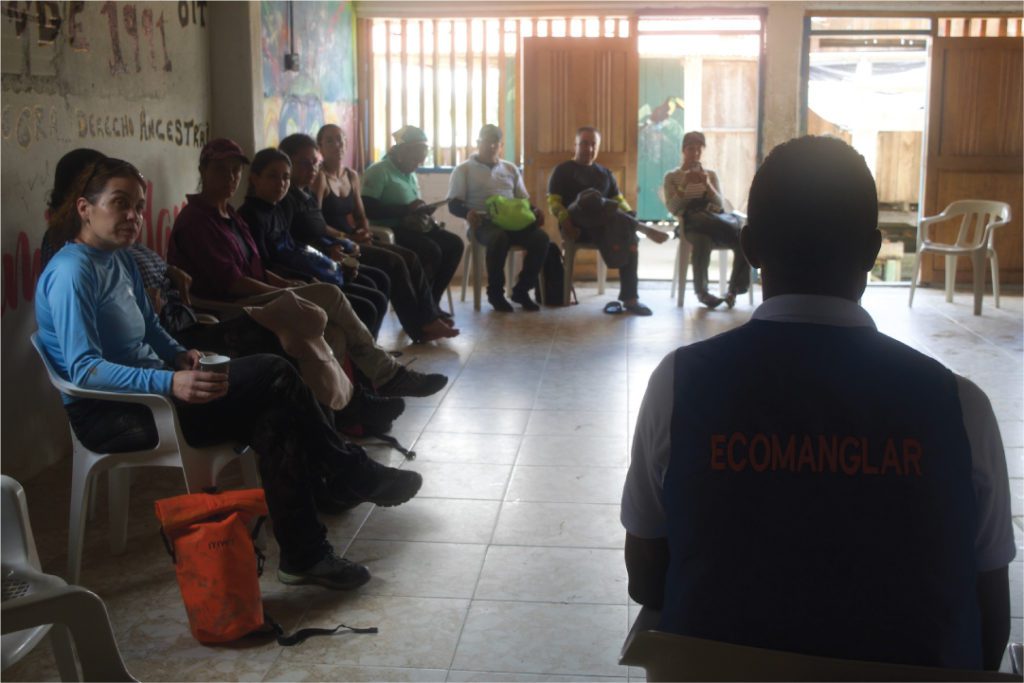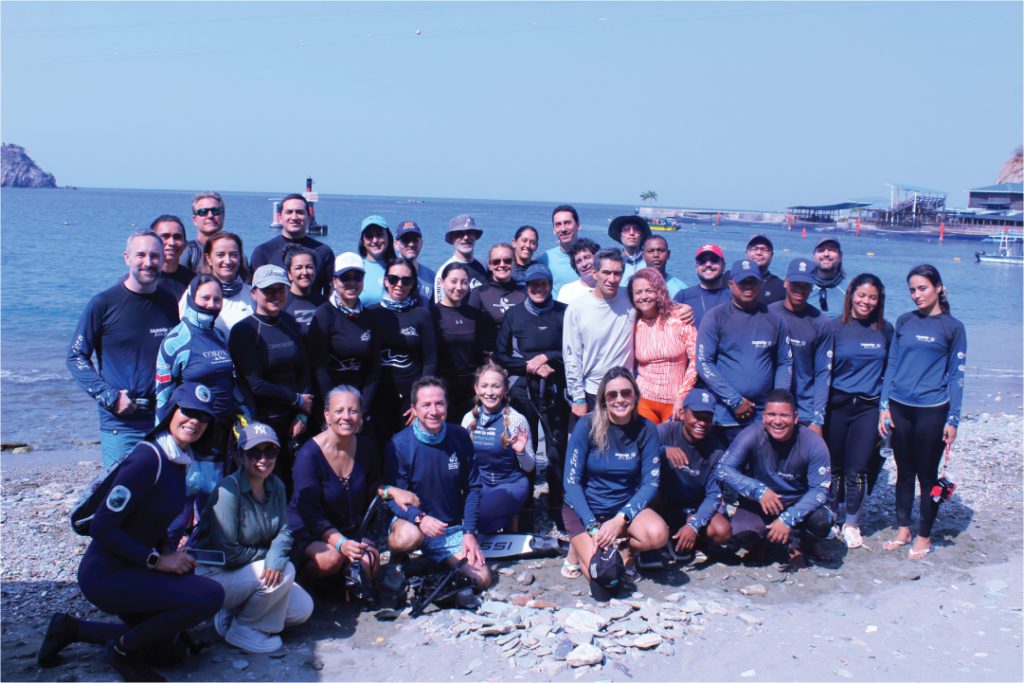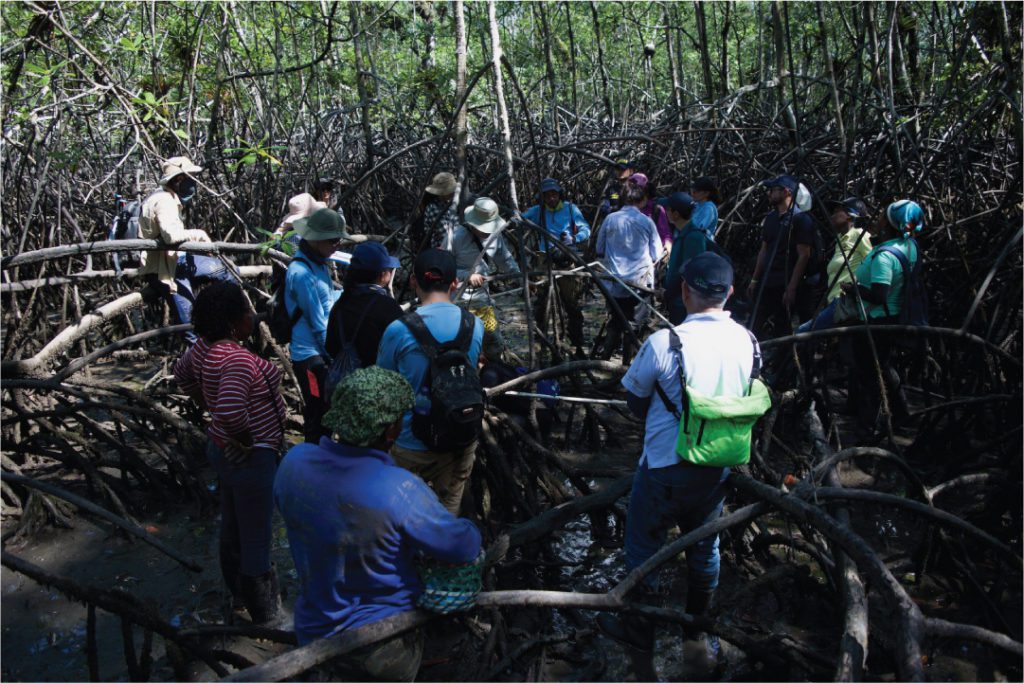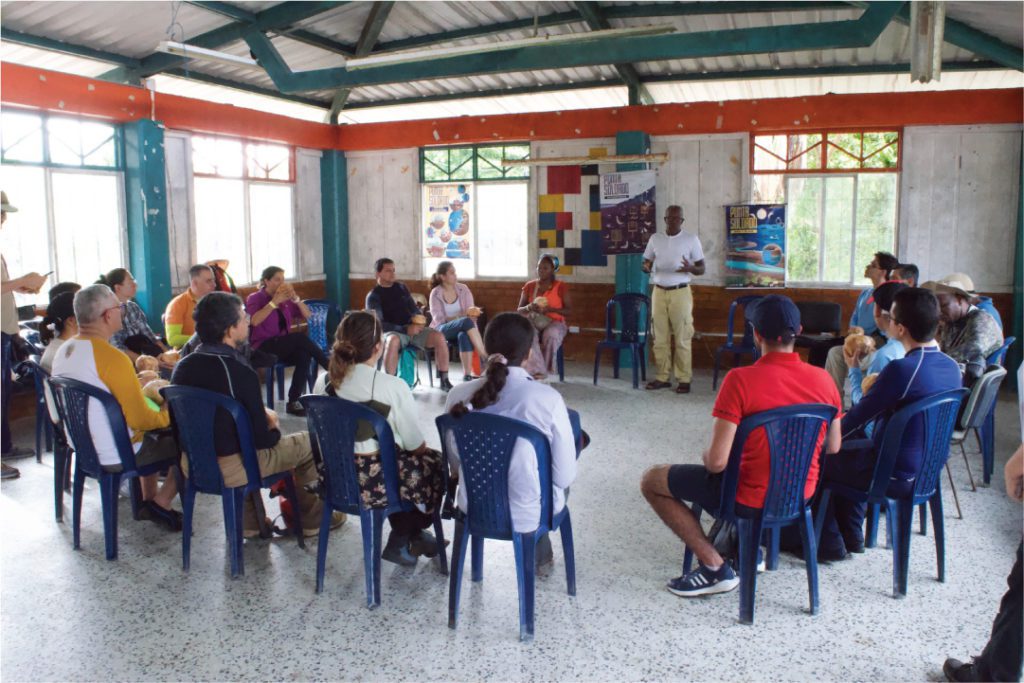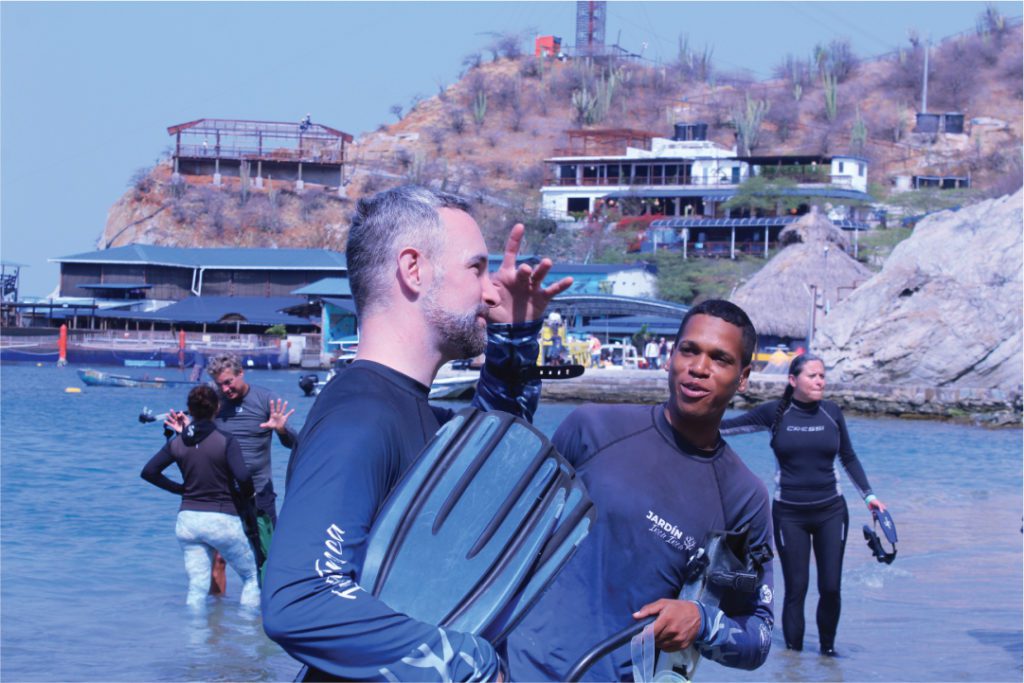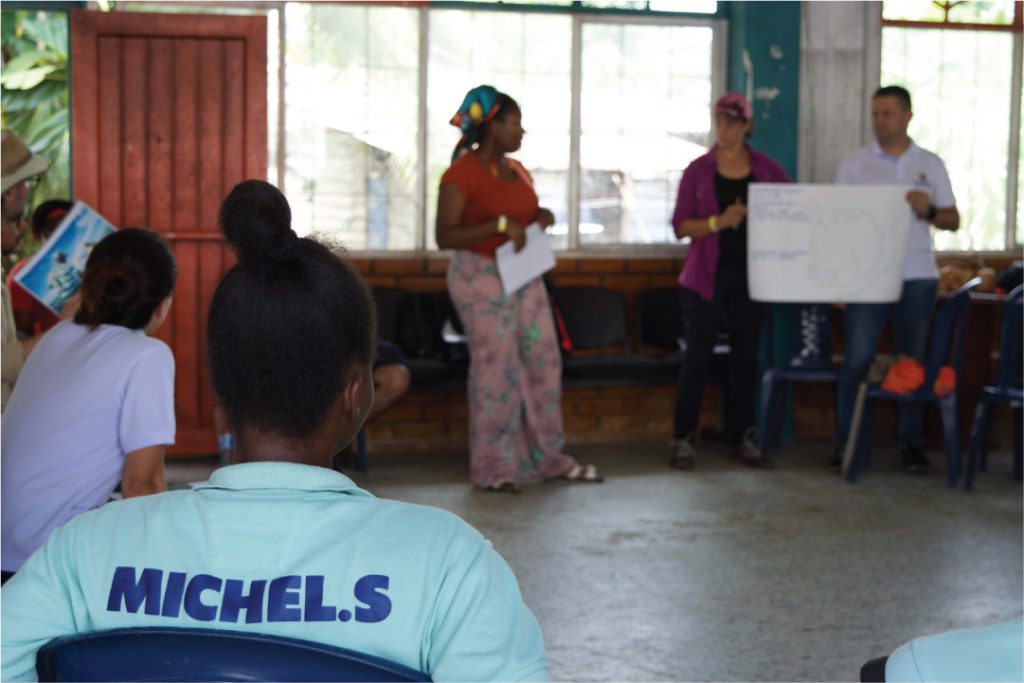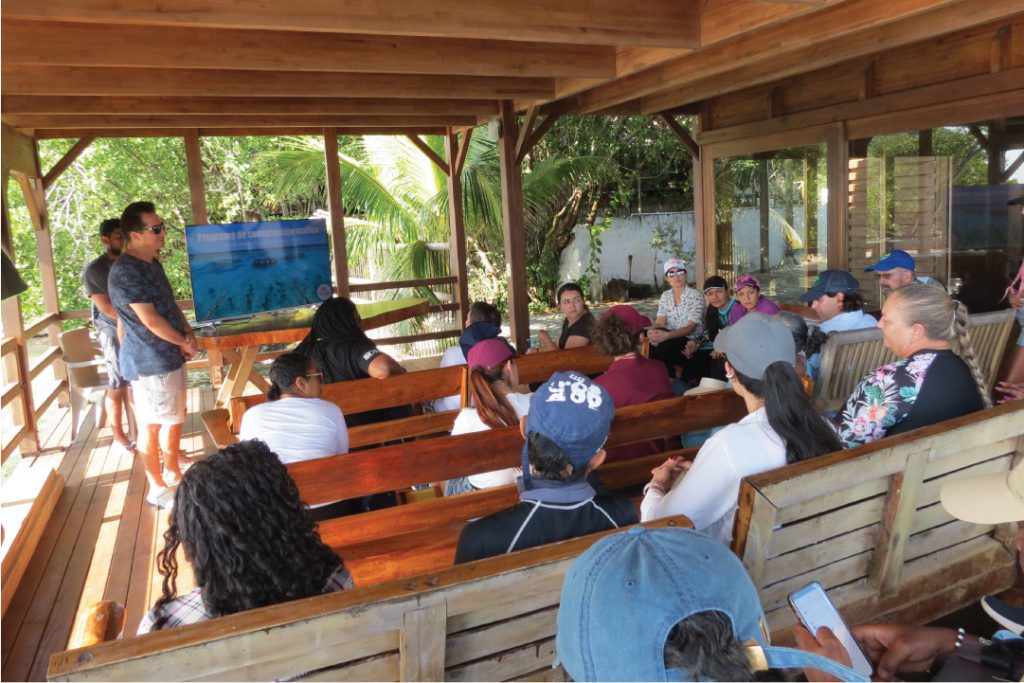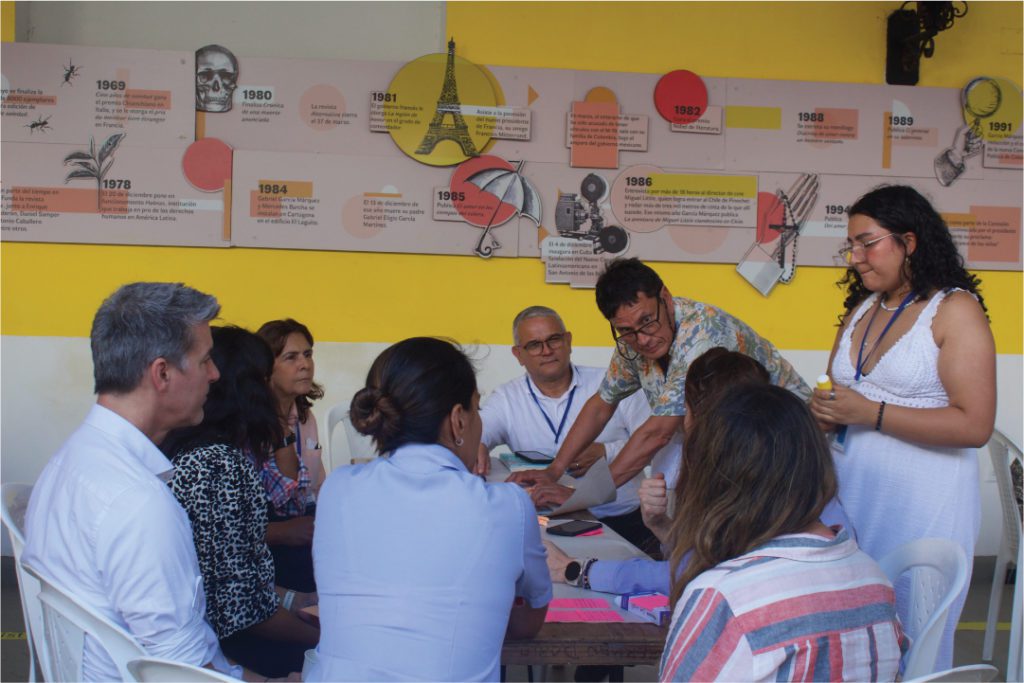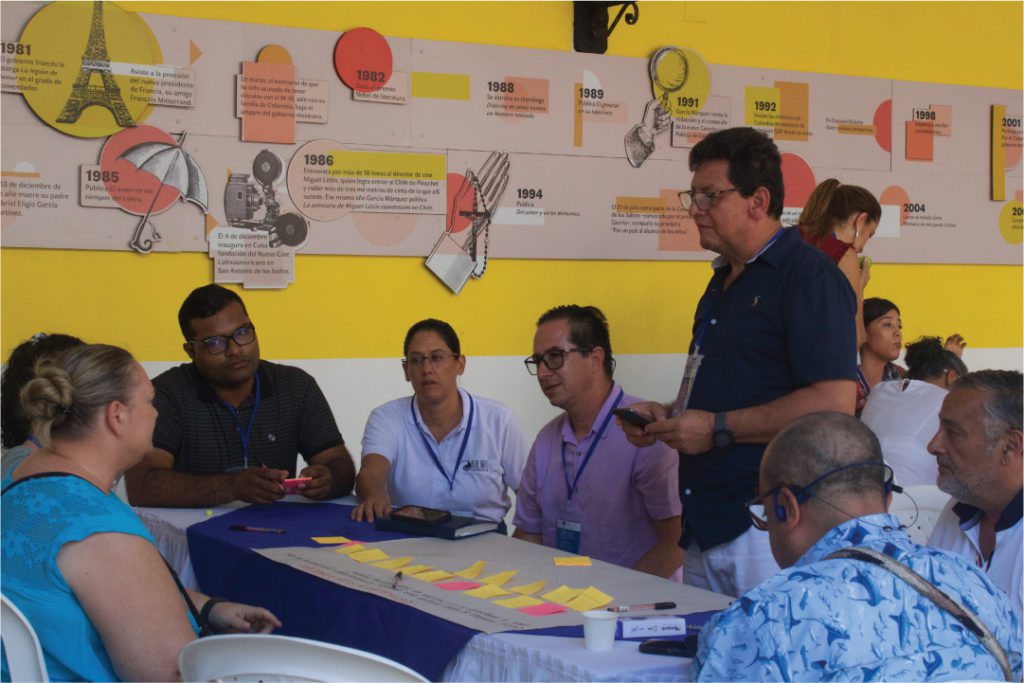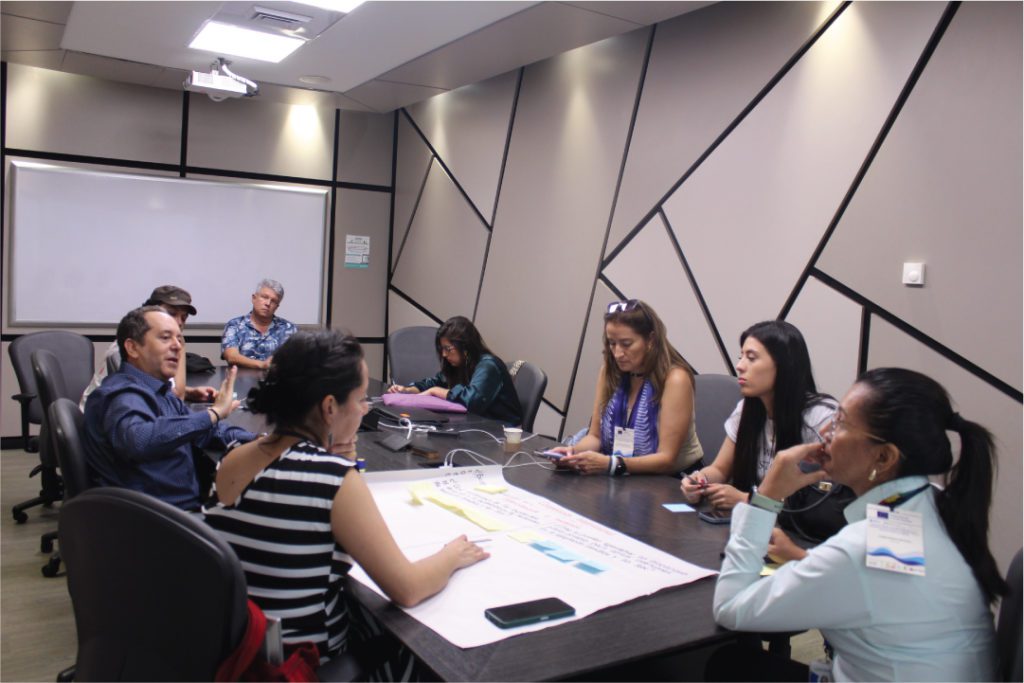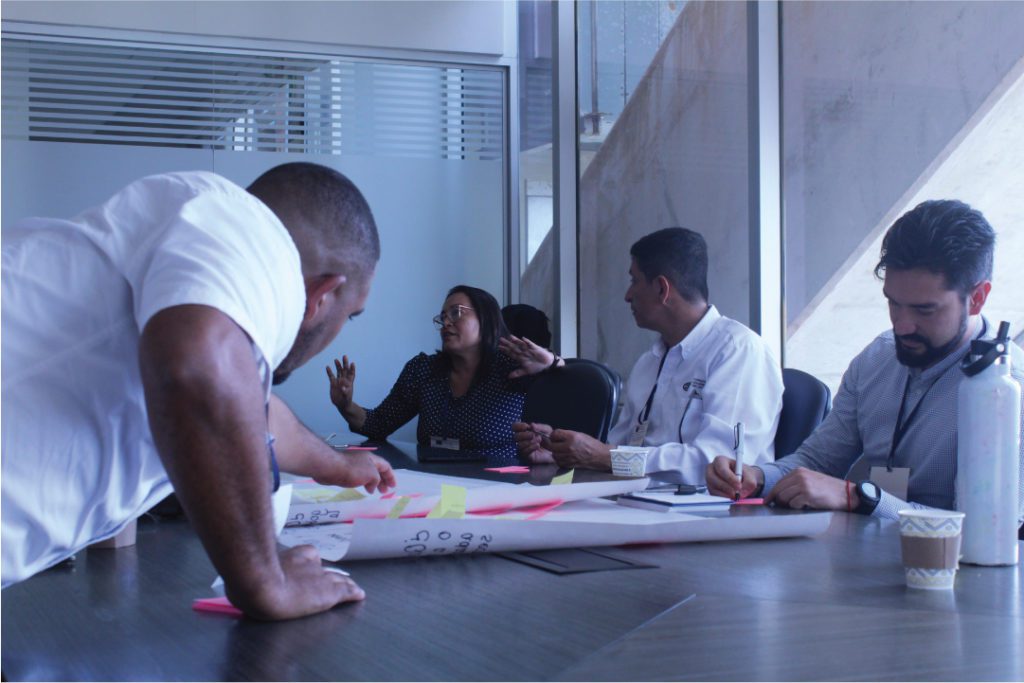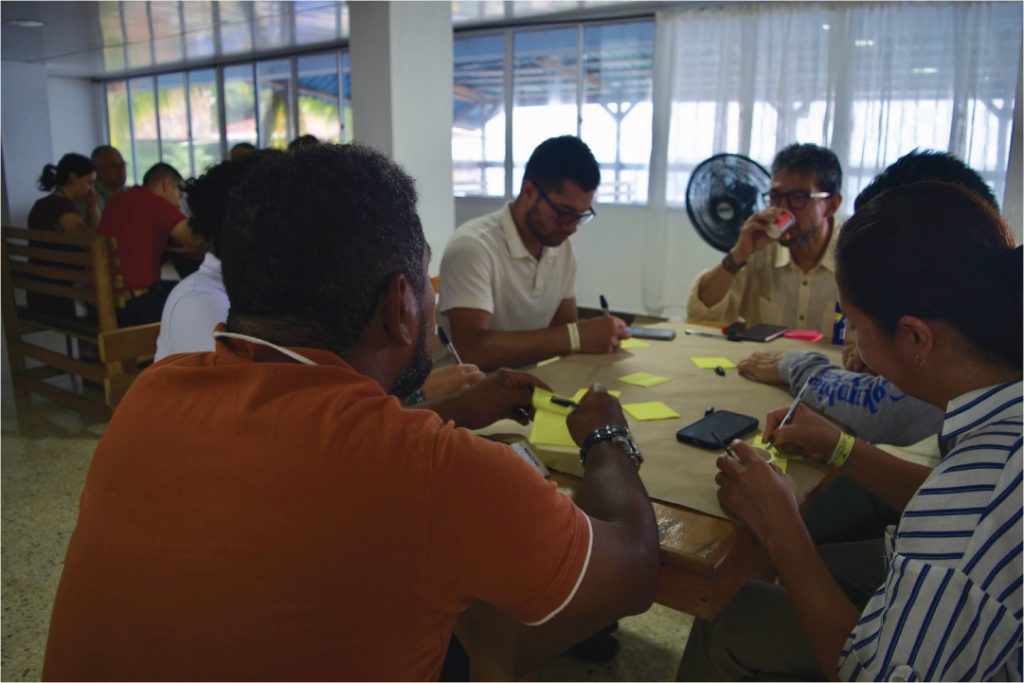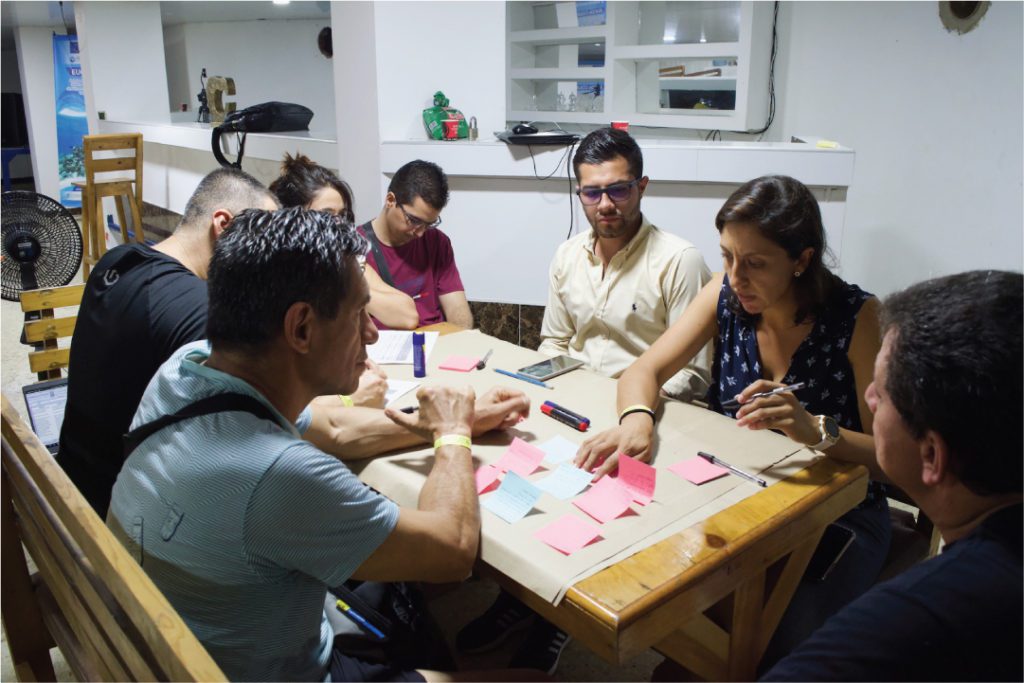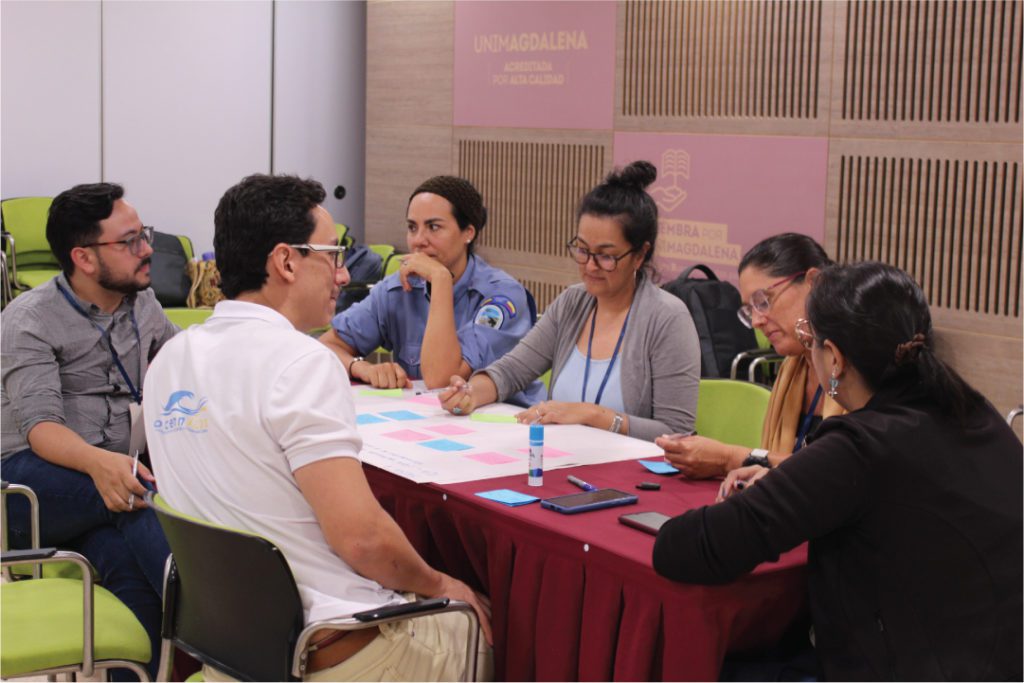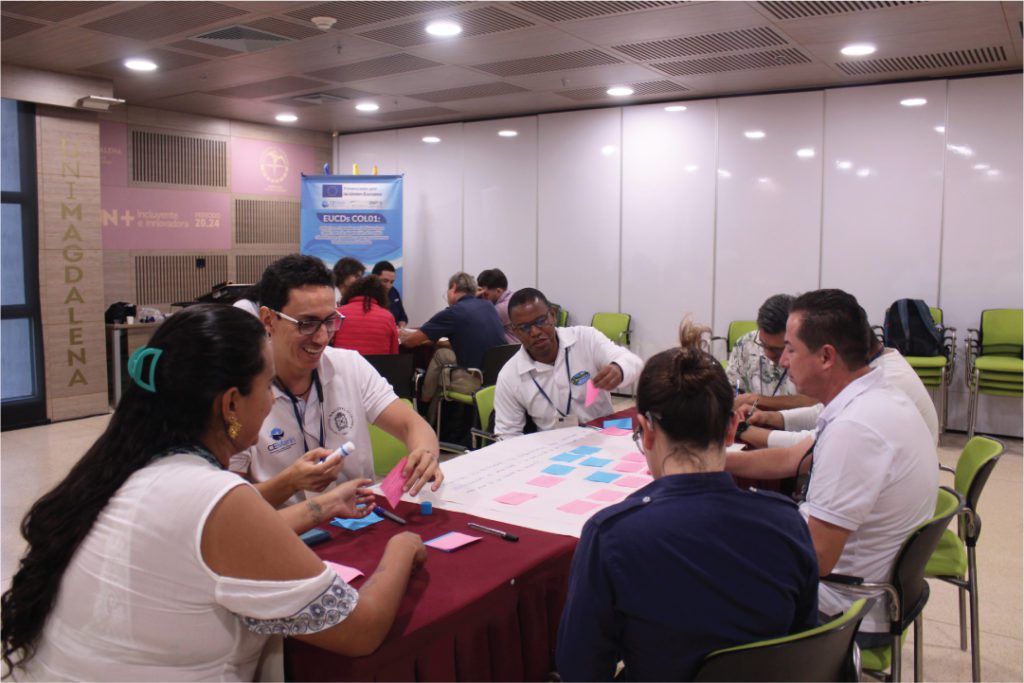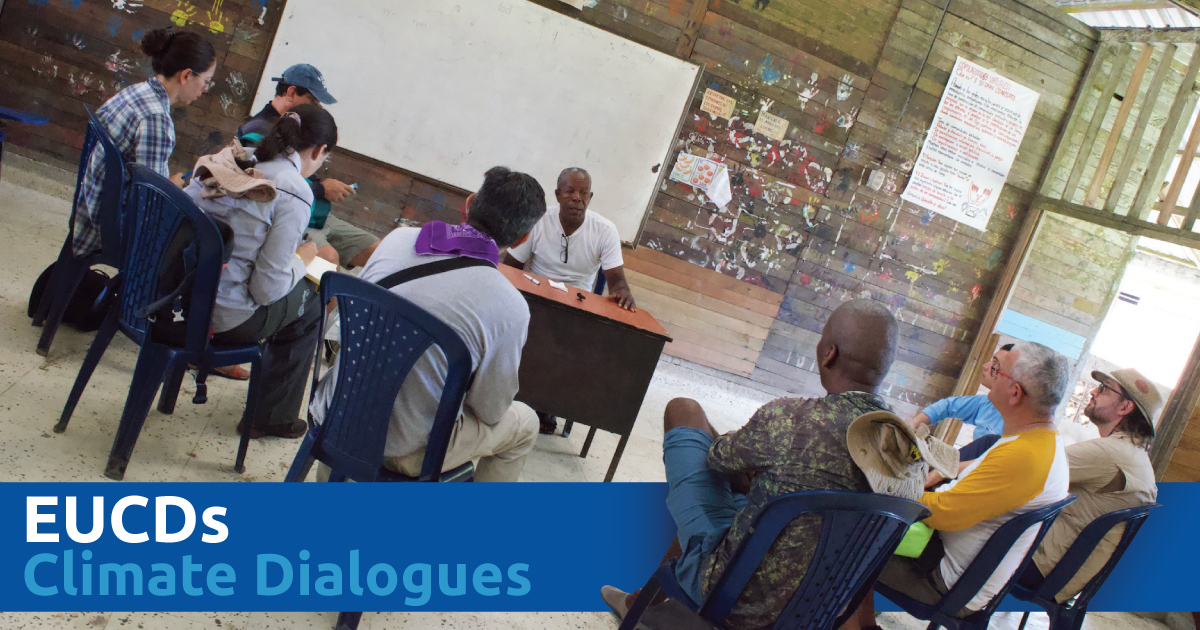
23 Apr Transforming Colombian coastal marine governance together
Climate change is a global challenge that demands coordinated actions and innovative solutions. In this context, CEMarin, the Leibniz Centre for Tropical Marine Research – ZMT and IHCantabria, with the financial support of the European Union, has developed a project of the European Union’s Climate Dialogues (EUCDs) in Colombia, undertaking a series of Nature-Based Solutions workshops (NbS) for climate change adaptation in coastal cities and island systems. Throughout the three workshops held from January to April this year, entities from the public and private sectors participated, aiming to share successful experiences regarding Nature-based Solutions and to bring new action alternatives from various perspectives.
Who participated in the Nature-based Solutions workshops?
During the three Climate Dialogues workshops, numerous experiences and points of view were highlighted and shared. We welcomed over 200 guests from entities such as: National Natural Parks of Colombia, the Ministries of Environment and Sustainable Development, Transport, Mines and Energy, Science, Technology and Innovation, Regional Autonomous Corporations of Canal del Dique, Valle, Cauca, Atlántico, Choco, and Magdalena, UNGRD, AUNAP, SGC, ANLA, DIMAR, Coralina, Blue Indigo, INVEMAR, CEPAL, GIZ, Hidria, Celsia, CCO, IDEAM, DNP, MoAm, WWF, Grupo Argos, Nutresa, Fondo Acción, the German Embassy in Colombia, Agrosavia, as well as community councils from San Juan, Punta Soldado, Alto Guapi, Los Riscales, and La Plata.

Additionally, the expert panels of the three Nature-based Solutions workshops were enriched by the presence of national and international speakers. Experts from countries such as Spain, Germany, the United States and Mexico, among others, shared successful experiences ranging from restoring degraded ecosystems to promoting sustainable practices. These initiatives highlighted the potential of working in harmony with nature to mitigate and adapt to the impacts of climate change.
Understanding Local Needs
To enrich the process of designing public policies for climate change adaptation, visits were made to various local communities in the Colombian Pacific and Caribbean regions. These visits increased awareness and understanding of needs, priorities, and local knowledge, which are essential for the success of any Nature-based initiative. Integrating this local knowledge into climate solutions is fundamental to ensure their relevance and acceptance by affected communities.
Monitoring and Evaluation Tools
A fundamental part of these Climate Dialogues workshops was the discussion on monitoring and evaluation tools for proposed NbS interventions, framed in a real context and with a special focus on understanding the needs and local knowledge of communities in Colombia. Effective methods for evaluating the environmental, social, and economic impacts of adopted solutions were discussed and shared, along with identifying indicators to monitor climate change adaptation in different regions. The purpose was to make sure that public policies are supported by solid data and tangible results.
Building More Assertive and Inclusive Public Policies
The final result of the European Union’s Climate Dialogues seeks to generate a guide that proposes and promotes more assertive, interdisciplinary, and inclusive public policies for Colombia by integrating Nature-based Solutions. With the analysis of shared experiences, emerging proposals, and local knowledge, the foundations are being laid for a comprehensive and sustainable approach to combating climate change in Colombia. This, in turn, aims to strengthen the technical capacities of Colombian authorities to protect coastal urban areas and island systems.
In conclusion, the European Union’s Climate Dialogues have been an invaluable space for knowledge and experience exchange, multisectoral collaboration, and the development of more effective climate public policies for Colombia. Through collaborations between the public and private sectors, academia, communities and all stakeholders, we can face the challenges of climate change and build a more sustainable future for future generations.
We extend our gratitude to each actor who participated in this project led by CEMarin, ZMT and IHCantabria on behalf of the European Union’s Climate Dialogues program for facilitating constructive meeting spaces and dialogues focused on improving sustainable governance tools for coastal and island regions threatened by climate change in Colombia.
More information about the workshops
Workshop #1
Lessons Learned on Nature-based Solutions (NbS) for Climate Change Adaptation in Coastal Cities and Island Systems
Workshop #2
Sectoral Dialogues for the Exchange of Experiences on Adaptation in Coastal Cities and Island Systems
Workshop #3
Technical workshops on climate change adaptation monitoring and evaluation systems (M&E)










